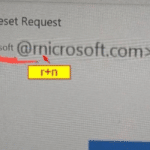Let's face it - most of us only think about security after someone's already raided the cookie jar. You're cruising along, business booming, and BAM! Some random hacker decides your company data looks tasty. Suddenly, you're wondering, "What is a firewall and why didn't I have one?" It's time to stop wondering and start protecting your internal network.
Imagine you've hired the world's most diligent bouncer for your digital nightclub. This bouncer stands at the door checking IDs, giving shifty characters the side-eye, and making sure nothing sketchy gets in or out. That's your firewall! It's not some fancy tech luxury, it's your first line of defence against digital troublemakers.
A firewall is essentially a security system that monitors and controls network traffic based on predetermined security rules. It establishes a barrier between your trusted internal network and untrusted external networks, such as the Internet. Think of it as the moat around your castle. Without that moat, attackers can waltz right up to your walls without any challenge.
When discussing firewall types, two leading players work best as a team rather than solo artists.
Hardware firewalls are like those massive security gates at the entrance to exclusive communities. They're physical devices that create a protective barrier between your entire network and the wild west of the internet. These devices filter all incoming and outgoing network traffic at the network level, before questionable content even gets near your individual computers. Hardware firewalls are non-negotiable components of their security infrastructure for businesses with more than a handful of devices connected to their computer network.
On the other hand, software firewalls are like personal bodyguards that live on each device in your network. While the hardware firewall monitors the main entrance, these software sentinels keep watch on each computer, server, or mobile device. They're particularly valuable for businesses with remote work setups or when devices leave the safety of your office network.
Different types of firewalls include proxy firewalls, stateful firewalls, and next-generation firewalls. Each serves a unique purpose in your overall security strategy. Many businesses also implement NAT firewalls for additional protection when connecting private networks to the internet.
You probably need both hardware and software solutions! The hardware firewall provides that crucial perimeter defence for your network perimeter, while software firewalls add personalised protection for each device. Modern firewalls offer comprehensive protection that traditional firewall solutions simply can't match.
When something tries to enter your network, your firewall plays 20 questions with it before deciding whether to let it pass. Firewalls inspect each data packet and perform packet inspection to determine if it's safe. Here's what happens:
The firewall acts as a packet filter, scrutinising both incoming and outgoing network traffic. If something on your network suddenly tries to send your customer database to a server in Suspicious-ville, the firewall blocks it! This protection is crucial for keeping cyber attacks at bay.
Stateful inspection firewalls offer even more sophisticated protection. These advanced systems use stateful inspection to track the state of active connections and make security decisions based on context, not just individual packets. They can identify and block intrusion attempts that simpler firewalls might miss.
Next-generation firewalls take this a step further by combining traditional firewall capabilities with intrusion prevention systems and application awareness. These sophisticated network security devices provide comprehensive protection against modern threats.

Not all firewalls are created equal. When shopping for the right firewall solution, you'll discover various options to protect data:
Proxy firewalls act as intermediaries between your internal systems and external sources, providing an additional layer of separation that helps filter traffic.
Stateful inspection firewalls (also called stateful firewalls) track the state of active network connections and apply security rules based on the full context of the traffic.
Packet-filtering firewalls examine each packet and allow or deny passage based on predefined rules. These firewalls often form the first line of defence in many security architectures.
The best security tool should be easier to manage than a toddler in a candy shop, with an intuitive interface. It should alert you quickly about potential threats and integrate smoothly with your other security tools, like intrusion prevention systems.
Firewalls also help protect against malicious code by preventing dangerous files from entering your network. Your firewall requires regular updates to protect against the latest cyber attacks. Security tool options should match your business like a well-tailored suit -what works for one computer might not be right for your entire network.
Pro tip: Those default firewall rules that came with your system? They're about as effective as a chocolate teapot. Custom firewall rules are essential for real protection.
Plot twist: Despite all this tech wizardry, about 95% of data breaches still involve human error SC Media, 2025. The most sophisticated firewalls can't protect you if someone gives away their password over the phone to a scammer pretending to be from IT support.
Enter the concept of the "human firewall", turning your people from your most significant vulnerability into your secret weapon! When firewall security requires strong human awareness, your overall protection dramatically improves. We need staff who can spot a phishing email from a mile away and teams who question suspicious links.
Building this human component requires ongoing training and creating a culture where security awareness is valued. Modern firewalls help, but can't eliminate the human factor in security risks. Using a firewall in combination with security awareness training provides the best protection against cyber attacks.
While you're enjoying your morning coffee, someone across the world is trying to figure out how to sneak into your systems. Firewall protection is your 24/7 security guard against these threats.
A proper firewall helps by blocking those sketchy websites that employees "accidentally" click while claiming they were "researching." Your firewall also excels at keeping unauthorised access attempts out of your network, making your business a much less appealing target for opportunistic cyber criminals.
Firewalls defend your most valuable assets against a constant barrage of threats. Firewalls also protect your private network by monitoring who's coming and going, keeping logs of connection attempts, and helping you spot patterns of suspicious activity. This vigilance gives you crucial early warning when something doesn't look right.
For businesses concerned about productivity, firewalls can control what your employees access online by filtering specific types of traffic. This feature isn't just about preventing time-wasting; it's also a security measure that keeps staff from wandering into the darker corners of the internet where malware often lurks.
Most importantly, firewalls shield your network against malware and viruses. By inspecting incoming data packets and blocking those that don't meet security criteria, firewalls prevent many attacks before they ever reach your valuable systems. In an age where ransomware can encrypt your entire business operation in minutes, this preventative approach is worth its weight in gold.
As of April 2025, the UK's Cyber Essentials scheme has new requirements that businesses need to follow for certification:
Not compliant? That's a problem you don't need! Finding the right firewall for your needs is essential to meet these requirements. The firewall requires proper configuration to effectively protect your internal and external networks while ensuring compliance with regulations.
Let's be honest - firewalls are potent tools, but they aren't magical shields that solve all security problems.
Firewalls won't fix human error. According to a recent survey, 66% of CISOS identified human error as their organisation's most significant cyber vulnerability Statista, 2024. No firewall can prevent someone from giving away credentials or using "password123" (seriously, please stop).
Even the best firewall can't prevent someone from clicking every phishing email. Recent research found that 86% of data breaches involve the use of stolen credentials Secureframe, 2025.
But firewalls DO give you visibility and control over your network traffic. Firewalls help monitor incoming and outgoing traffic, allowing you to ensure only legitimate traffic passes through. A firewall acts as a critical barrier, inspecting network traffic to ensure only authorised communications occur between your computer network and the internet.
We usually pair firewalls with other security measures like endpoint protection, multi-factor authentication, and regular security evaluations. This layered approach to security protects multiple levels.
Firewalls filter traffic based on predefined security rules. They scrutinise incoming and outgoing network traffic, looking for signs of trouble. These systems can monitor specific types of traffic, allowing administrators to block dangerous content while permitting legitimate business communications.
The right firewall offers protection against a wide range of threats. It analyses packets travelling across your network and the internet, ensuring nothing malicious enters your systems. Advanced filtering firewall capabilities can even inspect encrypted traffic to identify hidden threats.
Implementing proper firewall protection reduces the risk of your business becoming a hacker's playground. Ransomware attacks have crippled organisations of all sizes, often resulting in payments of tens or thousands of pounds to regain access to critical systems.
Using a firewall to block harmful traffic while allowing legitimate communication is fundamental to modern business operations. The right firewall helps protect both individual computers and your entire network infrastructure.
At Silver Lining Cyber Security, we don't offer complicated firewall products. We provide effective firewall solutions. Our approach is focused on delivering maximum protection with minimum hassle.
We offer firewalls that check your network traffic continuously, scanning for suspicious activity and blocking potential threats. Our firewall systems are designed to be robust yet user-friendly.
We provide the right firewall setup for YOUR specific needs, whether you need to protect a single network security device or an entire corporate infrastructure. We establish clear rules, provide regular updates, and offer support when things get weird (because in cybersecurity, things invariably do get weird sometimes).
Our team handles all the technical stuff, allowing you to get back to building your empire. Firewall technology is constantly evolving, and keeping up with the latest threats requires expertise. That's where we come in.
Q: Do I still need an antivirus if I have a firewall?
A: Yes! That's like asking if you still need a roof when you have walls. Different jobs, both important! Firewalls filter traffic between networks, while antivirus software focuses on detecting and removing malicious code that might already be on your device.
Q: How do firewalls filter traffic?
A: Firewalls can filter virtually all types of traffic, including web browsing, email, file transfers, and application data. Modern firewalls offer sophisticated filtering based on application type, content, and user identity. They examine the source and destination to determine whether communication should be allowed.
Q: How do firewalls shield your network?
A: Firewalls shield your network by creating a secure barrier between your trusted systems and potential threats. They inspect all traffic, block suspicious activity, prevent unauthorised access, and protect sensitive information from exposure.
Q: Can firewalls also protect remote workers?
A: Absolutely! Modern firewalls can monitor connections from remote work locations, ensuring that employees working from home or on the remain protected. Many solutions offer specific features designed to secure connections between home offices and your leading business network.
The proper firewall helps protect your business from costly data breaches and cyber attacks. According to UK government data, the average direct cost of the most disruptive breach for micro and small businesses in 2024 was £2,240 Statista, 2024, while globally, the average breach cost reached an all-time high of £3.6 million in 2024 IBM, 2024.
Different firewalls offer different capabilities. Some focus on specific types of protection, while others provide comprehensive security for your entire network. Like hardware firewalls provide perimeter protection, while firewall software secures individual devices. The best approach typically combines multiple solutions for layered security.
Firewalls tend to be most effective when properly configured and regularly updated. Without adequate protection, you're essentially inviting trouble. Don't be that person who only thinks about security after a breach. When it comes to cybersecurity, prevention is infinitely cheaper and less stressful than recovery.
Ready to get serious about firewall security without the technical headaches? Our team of friendly security nerds is standing by to help you find the right firewall for your specific needs, translating tech-speak into plain English and turning your cybersecurity from a source of anxiety into a source of confidence.
Because at the end of the day, modern firewalls aren't just about blocking threats—they're about helping your business thrive in a digital world full of both opportunities and threats.

